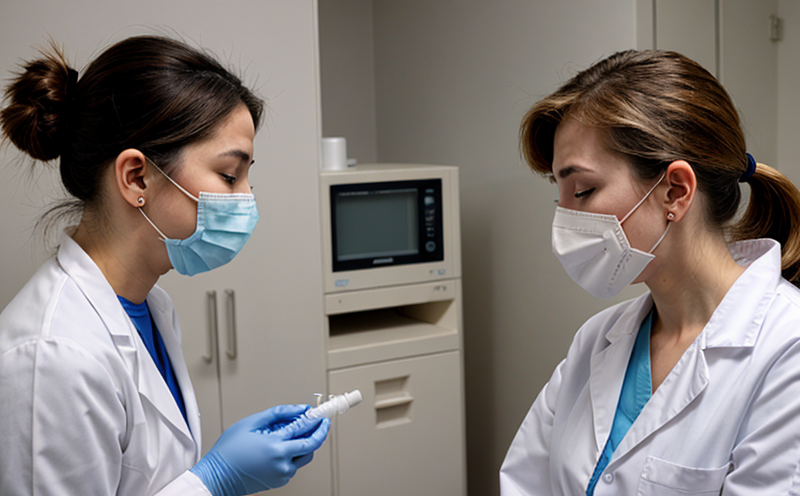Cross-Reactivity Testing Between Animal Allergens
Understanding and managing allergic responses is paramount in clinical healthcare. Cross-reactivity testing between animal allergens plays a crucial role in identifying potential cross-reactions that can lead to misdiagnosis or inadequate treatment. This service ensures that healthcare providers have accurate information about the likelihood of an individual experiencing an allergic reaction when exposed to one type of animal allergen if they are already sensitized to another.
Animal allergens such as cat, dog, and horse dander can cause significant health issues in individuals with pre-existing allergies. Cross-reactivity testing helps in predicting the cross-reactions between these allergens, thereby enabling more effective management strategies. This is particularly important for clinical and healthcare settings where patient safety and well-being are paramount.
The test involves a series of steps to ensure accurate results. Firstly, patient samples are collected and prepared according to strict protocols. These samples are then subjected to various tests using standardized methods approved by international bodies such as ISO or ASTM. The process ensures that the testing is consistent with recognized global standards.
Once the samples have been processed, the test utilizes advanced instrumentation capable of detecting even trace amounts of allergens. This precision is critical in identifying cross-reactivity accurately. The results are then analyzed using sophisticated software to correlate data and provide clear insights into potential cross-reactions. This detailed analysis allows healthcare providers to make informed decisions about patient care.
The importance of this test cannot be overstated, especially in environments where patients have multiple allergies or sensitivities. By understanding the cross-reactivity between different animal allergens, clinicians can tailor treatment plans that minimize adverse reactions and improve overall quality of life for patients.
Moreover, this testing service is vital for research purposes, aiding in the development of new treatments and therapies for allergic conditions. The insights gained from such tests contribute significantly to advancing medical knowledge and improving patient outcomes.
Benefits
- Patient Safety: Ensures that patients are not exposed to allergens they may react poorly to, reducing the risk of severe allergic reactions.
- Informed Decision-Making: Provides healthcare providers with accurate data to make informed decisions about patient care and treatment plans.
- Precision Medicine: Supports personalized medicine approaches by tailoring treatments based on individual allergen sensitivities.
- Research Contributions: Contributes valuable data to medical research, enhancing the understanding of allergic reactions and potential interventions.
Why Choose This Test
Cross-reactivity testing between animal allergens is essential for several reasons. Firstly, it ensures patient safety by identifying potential cross-reactions that could otherwise lead to severe allergic responses. Secondly, the test provides healthcare providers with critical information necessary for making informed decisions about treatment plans.
Thirdly, this service supports precision medicine by offering tailored treatments based on individual allergen sensitivities. Lastly, it contributes significantly to medical research, helping in the development of new therapies and interventions for allergic conditions. By choosing this test, healthcare providers can ensure they are providing the most effective care possible.
International Acceptance and Recognition
The cross-reactivity testing between animal allergens is widely recognized and accepted globally. This service adheres to international standards such as ISO, ASTM, EN, and IEC, ensuring that the results are consistent and reliable across different regions.
Healthcare providers from various countries can trust these test results due to their adherence to global standards. The use of standardized methods ensures that the testing is accurate and repeatable, thus providing confidence in the outcomes. This international acceptance also facilitates collaboration among healthcare professionals worldwide, enhancing the exchange of knowledge and best practices.
By choosing this service, healthcare providers ensure they are using internationally recognized and accepted methodologies, which not only enhance patient care but also contribute to advancements in medical science.





